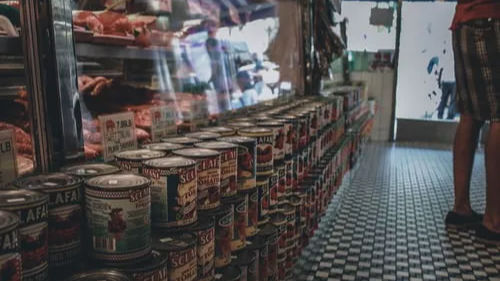Tyson Foods is recalling 8.5 million pounds of frozen, cooked chicken items due to the possibility of listeria contamination.
According to media reports, the recall was announced Saturday night by the company and the Food Safety and Inspection Service of the United States Department of Agriculture. Tyson branded and private label restaurant goods are included in the recall, including Jet’s Pizza, Casey’s General Store, Marco’s Pizza, and Little Caesars.
The CDC also issued a food safety notice, stating that the items – which were distributed countrywide to shops and institutions such as hospitals, nursing homes, restaurants, and schools – might be related to a listeria outbreak that has caused three illnesses and one death.
Also Read | 20% India has toxic levels of arsenic in groundwater: Study
“We are taking this precautionary step out of an abundance of caution and in keeping with our commitment to safety,” Scott Brooks, Tyson Foods senior vice president, food safety and quality assurance, in a news release told USA Today.
The items in question were produced between December 26 and April 13 at a single factory in Dexter, Missouri, according to Tyson Foods. The company stated that it has been cooperating with the USDA on the recall and “while there is no conclusive evidence that the products were contaminated at the time of shipment, the voluntary recall is being initiated out of an abundance of caution.”
Consumers should not eat the items and should either throw them away or return them, according to the USDA. Businesses should not serve or sell the recalled items, according to the CDC.
“No other Tyson products are impacted by the recall, including but not limited to any Tyson brand fresh chicken; frozen, raw chicken products or chicken nuggets,” the company said in a press release.
Also Read | Will India’s efforts to grow asafoetida come to fruition?
The three persons who became ill in this outbreak, according to the CDC, ate meals provided at a long-term care home or hospital between April 6 and June 5. Two of the infections occurred in Texas, while the other occurred in Delaware.
When two or more individuals get “the same illness from the same contaminated food or drink, the event is called a foodborne disease outbreak,” according to the CDC.
According to the CDC, Listeria can cause classic food poisoning symptoms such as diarrhoea and fever. When the bacteria spread beyond the stomach to other areas of the body, it can develop invasive listeriosis, which is a serious condition.
Severe infection symptoms generally appear one to four weeks after consuming infected food, although they might appear up to ten weeks later.
Also Read | 34 burgers, 10 mins: Washington 4th of July eating contest ends in tie
According to the CDC, people aged 65 and older, pregnant women, and those with weaker immune systems are at a higher risk of contracting listeria.







